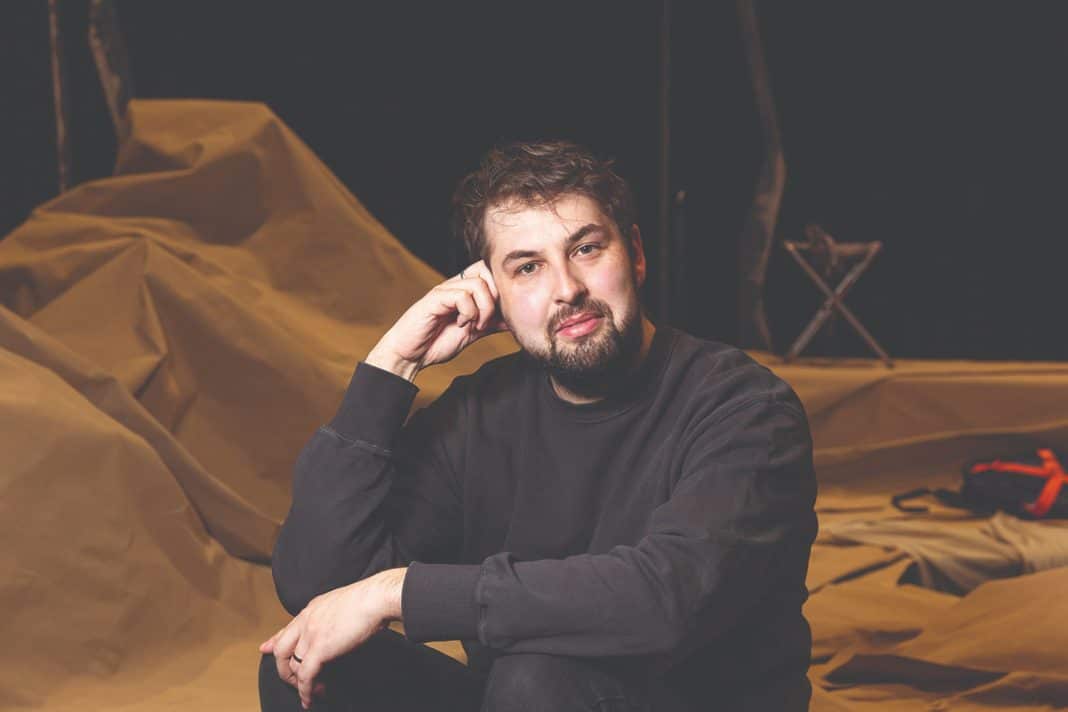Set in a hypothetical not so distant future, Ngadjung paints a picture of what could happen if all our natural water resources were to dry up. Exploring our connection to country and the role we are playing in its demise, Ngadjung hits the stage at Belconnen Arts Centre later this month, 19-27 August.
Ngadjung is a Ngunnawal word meaning water or waterhole; the title was chosen by the Belconnen Arts Centre (BAC) and approved through discussions with the play’s Cultural Consultant, Aunty Caroline Hughes, before BAC approached writer and director Dylan Van Den Berg.
“They kind of had this provocation around water, human connection to water, First Nations connections to water,” Van Den Berg said.
Set right here on Ngunnawal Country (Canberra), the story focuses on an unlikely pairing of two Indigenous women. The younger woman, Cass, is on the run from the multinational corporation, Wetco, when she stumbles upon Flick, an older woman digging in a dried-up riverbed. Over the period of a few days, the two get to know each other and share stories that have laid dormant.
“They’re kind of thrown together to evade Wetco and ultimately try and come up with a solution of how do we bring water back, and try and answer the question: what happens if we don’t have water, what do we lose?” Van Den Berg said.
With every well, lake and waterhole long dried up, Wetco has exhausted the world’s water supply and now makes a synthetic liquid, which is all the people have to drink. The unpalatable liquid is slowly making people unwell as their reliance on it grows.
“I reckon it tastes like soda when it’s gone flat, the last bit in the bottle, a flat, carbonated, metallic taste, it’s not quite right,” Van Den Berg smiled, while admitting how much he enjoyed regular soda water.
Flick continues to dig the riverbed, while also trying to dig up the memory of the place, her connection to her land and her family. Like a creature that lays dormant in a dried-up water reserve waiting for the water to return, Flick searches and waits for her connection to her people to return.
An Indigenous Palawa man from northeast Tasmania, Van Den Berg also has family connections to the Bass Strait Islands. He now resides on Ngunnawal country, working in collaboration with Ngunnawal traditional elder Aunty Caroline Hughes over the past couple of years in relation to the play and its messages.
Wanting to write something current and poignant, Van Den Berg spent a lot of time thinking about the pressing issue of climate change. One of the things that was foremost in his thought process was how we have ignored the traditional owners of the land, disregarding the ways they had cared for it. However, now we are aware of the damage mass industry has caused to the land, we are turning to First Nations People and asking how to fix the problems.
“The problem is this is colonised land and it’s not the same as it was pre-colonisation, so the answer isn’t sitting purely with Torres Strait Islander and Aboriginal people either; it really has to be a collaborative effort.”
The play, like many set in the future, has a magical kind of realism to it. It aims to engage audiences in discussion around our country, the things we are doing to it, the consequences of our actions, and how we can change things before it’s too late.
“I think we’re staring down the barrel of our natural resources drying up, maybe not in 100 years but maybe two or three hundred; I think it’s a real fear and something we should be thinking about for five or six generations.”
First time director Van Den Berg was nervous when he accepted the position as he usually sticks to writing and acting roles. Grateful for the mentorship of Aunty Rachel Maza, director of the Ilbijerri theatre company in Melbourne, he is confident in the production and is keen to continue in the role.
Previously when writing scripts, he didn’t spend too much time trying to figure out how the sometimes-tricky concepts or situations would translate to the stage, as that’s the director’s problem. Now he is the director, Van Den Berg joked he felt guilty for all the things he had put directors through.
“I feel terrible; I need to write them letters. I’m so sorry for what I did,” he smiled.
Originally commissioned in 2019, the play has been delayed due to the pandemic, which influenced its narrative. The realisation that the impossible can happen after experiencing widespread stay-at-home orders guided the story to the futuristic timeline, and the theme of millionaires and billionaires hoarding resources, Van Den Berg said.
It also allowed extra time to develop ideas, hold online development workshops, and for the piece to evolve.
Audiences needn’t worry they will have to drink Wetco’s metallic-tasting liquid when attending the play; Van Den Berg joked he has stocked the bar with his own brand of soda water, made at home using his Soda Stream.
For tickets and more information, head to belcoarts.com.au/ngadjung
Get local, national and world news, plus sport, entertainment, lifestyle, competitions and more delivered straight to your inbox with the Canberra Daily Daily Newsletter. Sign up here.


